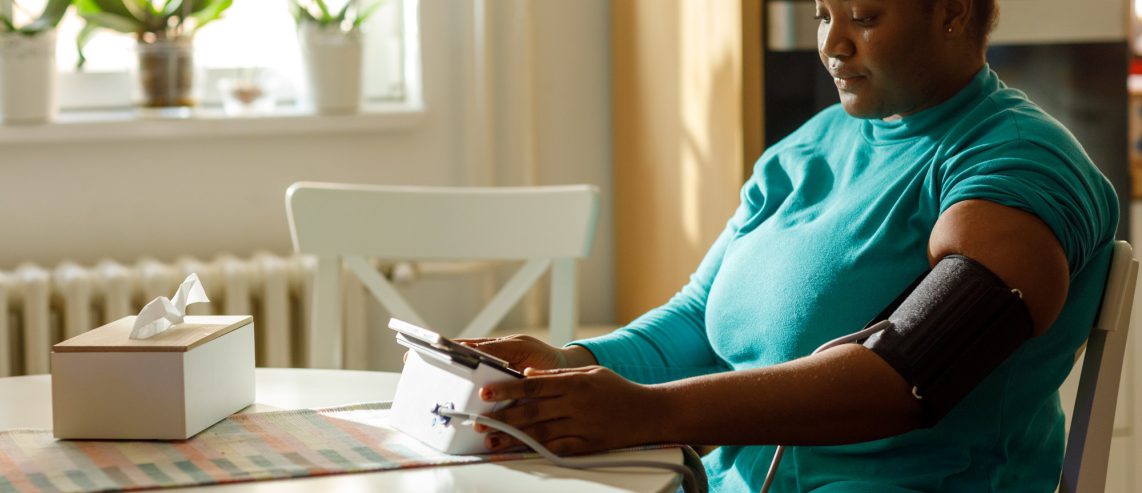It’s common to feel thirsty from time to time. It’s often a sign that you are dehydrated. That means your body isn’t getting the fluids it needs, either that day or on a regular basis.
If you have heart issues, you may wonder if dehydration affects your heart health. For example, does dehydration raise blood pressure or lower it? Or does dehydration raise your heart rate?
Here’s what you should know about how dehydration can affect your health, including your heart health.
What Is Dehydration?
According to the National Library of Medicine, water makes up between 55% to 65% of the adult body. Every organ in your body needs water to function properly.
Your body loses water through your skin, lungs, kidneys, and gastrointestinal tract. Your body loses water when:
- Breathing.
- Sweating
- Urinating or having a bowel movement.
Dehydration happens when the water your body loses is greater than the amount you take in through what you drink and eat.
Never Miss a Beat!
Subscribe to Our HealthBeat Newsletter!
Thank you for subscribing!
You can now select the specific newsletters you'd like to receive.
You are already subscribed.
Subscribe to more newsletters in our email preference center.
Sorry, an error occurred. Please try again later.
Get Healthy Tips Sent to Your Phone!
What Does Dehydration Feel Like?
Feeling thirsty isn’t the only sign of dehydration. Even mild dehydration — losing just 1% to 2% of your body water — can cause problems.
Signs and symptoms of dehydration
Signs and symptoms of dehydration include:
- Decreased energy.
- Fatigue.
- Weakness.
- Headache.
- Dry mouth and tongue.
- Dry or cracked skin and lips.
- Longer post-workout recovery.
- Muscle cramps.
- Lightheadedness or dizziness.
- Constipation.
- Dark urine color or urinating less often.
- Confusion and seizures
How does dehydration affect blood pressure and pulse?
Dehydration and blood pressure can go hand in hand. In some cases, you may not realize dehydration is affecting your blood pressure unless you measure your blood pressure.
When it comes to your blood pressure and pulse, dehydration can cause the following:
- Heart palpitations or rapid heart rate. Dehydration can cause tachycardia. That’s when you have a heart rate of more than 100 beats per minute.
- Hypotension, or low blood pressure. In general, according to the National Library of Medicine, only severe dehydration will cause you to have low blood pressure.
- Orthostatic hypotension. If you’re dehydrated, you can have a sudden drop in blood pressure when you stand up from a laying down position. Orthostatic hypotension means your blood pressure drops by at least 20 mmHg systolic or 10 mmHg diastolic within three minutes of standing.
- Syncope. You can faint or pass out because of a sudden drop in blood pressure. The medical term is syncope.
Hydration helps your heart pump blood through the blood vessels to the muscles more easily. Dehydration can cause your heart to work harder, according to the American Heart Association. This can put your heart at risk.
What Causes Dehydration?
Dehydration can happen to anyone at any age. But it’s a common problem in older adults. Between 17% to 28% of older adults experience dehydration, according to the National Library of Medicine.
Often, dehydration happens simply because you aren’t getting enough fluids throughout the day. Many other things can cause you to get dehydrated, including:
- Exercising or physical activity. Sweating too much can cause you to get dehydrated.
- Heat exposure. You can start to get dehydrated within a few hours of extreme heat. Dehydration can cause heatstroke, which can lead to death.
- Overuse of diuretics or laxatives. Diuretics are drugs often used to treat high blood pressure or hypertension.
- Illness, including high fever or severe vomiting and diarrhea.
How to Stay Hydrated
Dehydration is easy to treat and prevent. According to the Academy of Nutrition and Dietetics, most people get 20% of the water they need from food. The rest you need to get from drinking. If you are healthy, follow these general guidelines from the Academy of Nutrition and Dietetics on daily water intake:
- Women should drink about nine cups of fluid daily.
- Men should drink about 13 cups of fluid daily.
How much water your body needs each day depends on your age and health conditions. Your doctor can help you decide how much water your body needs each day. If you have certain health conditions, such as heart failure or kidney disease, you may need less.
Tips for better hydration
These tips can help you stay hydrated and get the water your body needs:
- Drink water throughout the day. Keep a refillable water bottle nearby to remind you.
- Listen to your body. By the time you feel thirsty, you are already dehydrated. Take that as a sign to drink more water.
- Choose water instead of caffeinated sodas or sugary drinks. Limit drinks with caffeine, such as coffee or tea. They are diuretics, so they can pull water from your body.
- When it’s hot out, limit the amount of time you spend outdoors. And drink extra fluid throughout the day.
- When you’re vomiting or have diarrhea, sip clear fluids, like water or flat ginger ale, to rehydrate. You can also try sports drinks or a formula like Pedialyte to replenish electrolytes.
- Eat a variety of fresh foods and vegetables. Produce high in water includes cantaloupe, watermelon, strawberries, lettuce, tomatoes, and spinach.
When Should You See Your Doctor for Dehydration?
If you often feel dehydrated, you should see your doctor. They can do a complete physical examination, review your medications, and may order testing, such as blood work, to find out why you are dehydrated.
Dehydration may signal you have a serious medical issue. Certain medical conditions can increase your risk of dehydration. These include:
- Diabetes.
- Kidney problems, including hyperglycemia and Addison’s disease.
- Cystic fibrosis.
- Pancreatitis.
- Severe burns and skin diseases.
When is dehydration an emergency?
Severe dehydration can lead to serious health issues, including kidney failure and heart problems. In some cases, it can lead to death.
To treat severe dehydration, you may need to go an urgent care or emergency room to replace the fluids and electrolytes you’ve lost. You may need to get fluids through an IV drip placed in your arm or hand.
It’s important to get medical help right away if dehydration causes any of the following:
- Confusion.
- Fainting.
- Rapid heartbeat or rapid breathing.
- You can’t urinate.
- Shock.
Sources
Adult Dehydration. StatPearls. National Library of Medicine. Link.
The Water in You: Water and the Human Body. U.S. Department of the Interior. Link.
Orthostatic Hypotension. MedlinePlus.gov. National Library of Medicine. Link.
Low Blood Pressure - When Blood Pressure Is Too Low. American Heart Association. Link.
Protect your heart and health during the 'dog days' of summer. American Heart Association News. Link.
How much water do you need? Academy of Nutrition and Dietetics. Link.
Dehydration. MedlinePlus.gov. Link.Fact Sheet: Hydration and Pancreatitis. National Pancreas Foundation. Link.
Tachycardia: Fast Heart Rate. American Heart Association. Link.
About Heart and Vascular Institute
The UPMC Heart and Vascular Institute has long been a leader in cardiovascular care, with a rich history in clinical research and innovation. As one of the first heart transplant centers in the country and as the developer of one of the first heart-assist devices, UPMC has contributed to advancing the field of cardiovascular medicine. We strive to provide the most advanced, cutting-edge care for our patients, treating both common and complex conditions. We also offer services that seek to improve the health of our communities, including heart screenings, free clinics, and heart health education. Find an expert near you.

